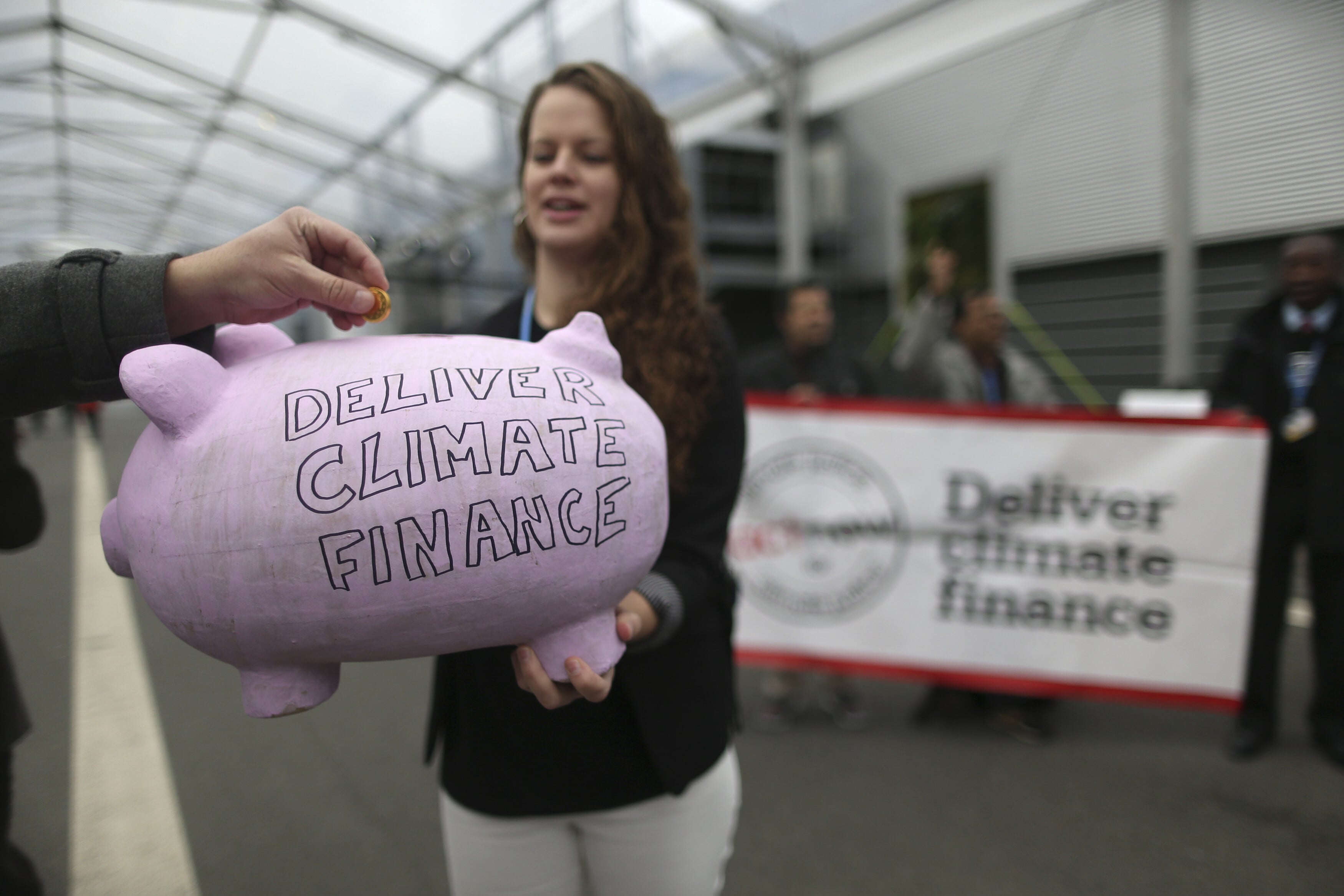Summer 2024 the hottest on record, and other nature and climate stories you need to read this week
2024 had the hottest summer on record.
Image: REUTERS/Kim Kyung-Hoon
- This round-up contains the key nature and climate news from the past week.
- Top nature and climate news: Summer 2024 breaks temperature records; Study highlights scale of plastics problem; Sunken village re-emerges in Greece.
1. Summer 2024 the hottest ever, EU climate change monitor says
The recent northern hemisphere summer was the warmest since records began, the European Union's climate change monitoring service has said.
The monthly bulletin from the Copernicus Climate Change Service (C3S) said that June to August of 2024 overtook summer 2023, and that the exceptional heat increases the likelihood 2024 will become the hottest year ever.
“During the past three months of 2024, the globe has experienced the hottest June and August, the hottest day on record, and the hottest boreal summer on record,” said C3S Deputy Director Samantha Burgess.
“The temperature-related extreme events witnessed this summer will only become more intense, with more devastating consequences for people and the planet unless we take urgent action to reduce greenhouse gas emissions."
Around the globe, temperature records have been tumbling this summer. Japan recorded its hottest-ever summer after three months with thousands of “extreme heat” events, its weather agency said. Parts of China also registered record hot weather in August, while Australia’s record for its hottest August day was broken with temperatures described as “gobsmacking” for the country’s winter.
Scientists say the climate crisis is fuelling disasters, from flooding in Sudan to drought on the Italian islands of Sicily and Sardinia.
Severe weather is costing the global economy billions of dollars a year, a new analysis of weather and economic data says.
2. Study highlights 'enormous scale' of plastic pollution
Researchers using artificial intelligence have created what they describe as “the first-ever global plastics pollution inventory”.
Their study, published in the journal Nature, modelled waste management in more than 50,000 towns and cities around the world to predict how much plastic waste is generated and where it ends up.
The calculations are eye-opening – 52 million tonnes of plastic pollution entered the environment in 2020, and two-thirds of the planet’s plastic pollution comes from uncollected rubbish. Almost 1.2 billion people – or 15% of the world’s population – are living without access to waste collection services, it says.
About 57% of all plastic pollution is burned in homes, streets and rubbish dumps, with no environmental controls in place by people who have no other option, the researchers estimate. Burning plastics poses a threat to vegetation and human and animal health, according to the UN.
Improving basic solid waste management, the authors of the Nature report say, would “massively reduce plastic pollution and improve the lives of billions”.
3. News in brief: Other top nature and climate stories this week
A sunken village in Greece has re-emerged as heatwaves and a lack of rainfall have led to the artificial lake surrounding it to recede.
A huge wildfire has destroyed 20% of a forest in the Brazilian capital, Brasilia. Officials think the fire in the National Forest of Brasilia, a 5,600-hectare conservation area, was started by arsonists.
The impacts of the climate crisis are costing African nations up to 5% of their GDP, the UN climate head has said.
The global data centre industry will emit 2.5 billion tonnes of CO2 until 2030, new research says, creating “a large market for decarbonization solutions”.
With sewage spills in waterways reaching record levels last year, Britain has set out legislation to toughen the oversight of its water companies.
Cities in the Global South are more exposed to extreme heat because they lack the vital cooling green spaces provide, according to a new study. Cities in the Global South have just 70% of the “cooling capacity” provided by urban greenery in the Global North, the research says.
Soil pollution is the top threat to underground biodiversity such as earthworms, insects and mites, researchers have said.
How is the World Economic Forum fighting the climate crisis?
4. More on the nature and climate crisis on Agenda
Tackling super pollutants like black carbon, alongside CO2, is vital for curbing global warming and protecting regions like the Arctic. This article explores why.
With air pollution being the biggest external cause of ill-health and premature deaths, the International Day of Clean Air for blue skies is an important date on the global calendar – find out more here.
High-emitting sectors such as heavy industry, once thought almost impossible to decarbonize, are taking crucial steps led by a collection of global companies. Read more about their commitments and achievements so far.
Accept our marketing cookies to access this content.
These cookies are currently disabled in your browser.
More on Climate ActionSee all
Tom Crowfoot
July 30, 2025
Wee Kean Fong and Yvonne Zhou
July 29, 2025
Pranidhi Sawhney and Adam Skali
July 29, 2025
David Carlin and Sourajit Aiyer
July 28, 2025
Nasim Pour, Sebastien Cross and Joel Gould
July 28, 2025
Michael Wang
July 28, 2025





